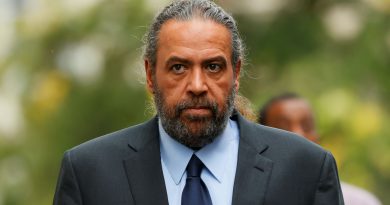US urges ‘orderly, responsible’ drawdown of UN peacekeepers from Mali
(Reuters) – The United States regrets a decision by Mali’s interim military authorities to ask a United Nations peacekeeping force to leave the country, the State Department said on Monday, calling for an “orderly and responsible” drawdown of the mission.
Mali’s Foreign Minister Abdoulaye Diop made the request during a U.N. Security Council meeting on Friday, citing a “crisis of confidence” between Malian authorities and the decade-long U.N. mission known as MINUSMA.
“The United States regrets the transition government of Mali’s decision to revoke its consent for MINUSMA,” State Department spokesperson Matthew Miller said. “MINUSMA’s drawdown must be orderly and responsible, prioritizing the safety and security of peacekeepers and Malians.”
“We are concerned about the effects this decision will have on the security and humanitarian crises impacting the Malian people,” he said in a statement.
Mali has struggled to stem an Islamist insurgency that took root following an uprising in 2012. MINUSMA was deployed by the U.N. Security Council in 2013 to support foreign and local efforts to restore stability.
Frustrations over the growing insecurity spurred two coups in 2020 and 2021, and the ruling junta has been increasingly at loggerheads with MINUSMA and other international allies, including France.
The junta has burned bridges with traditional Western allies and turned to Russia for help boosting its military capabilities.
The United States “will continue to work with our partners in West Africa to help them tackle the urgent security and governance challenges they face,” Miller said. “We welcome further consultations with regional leaders on additional steps to promote stability and prevent conflict.”
U.N. Security Council members had started to discuss a draft resolution to extend MINUSMA’s mandate, which expires on June 30. It was unclear what would happen now.
The U.N. special envoy to Mali, El-Ghassim Wane, said on Friday it would be “extremely challenging, if not impossible” to operate in a country without the government authorities’ consent.


